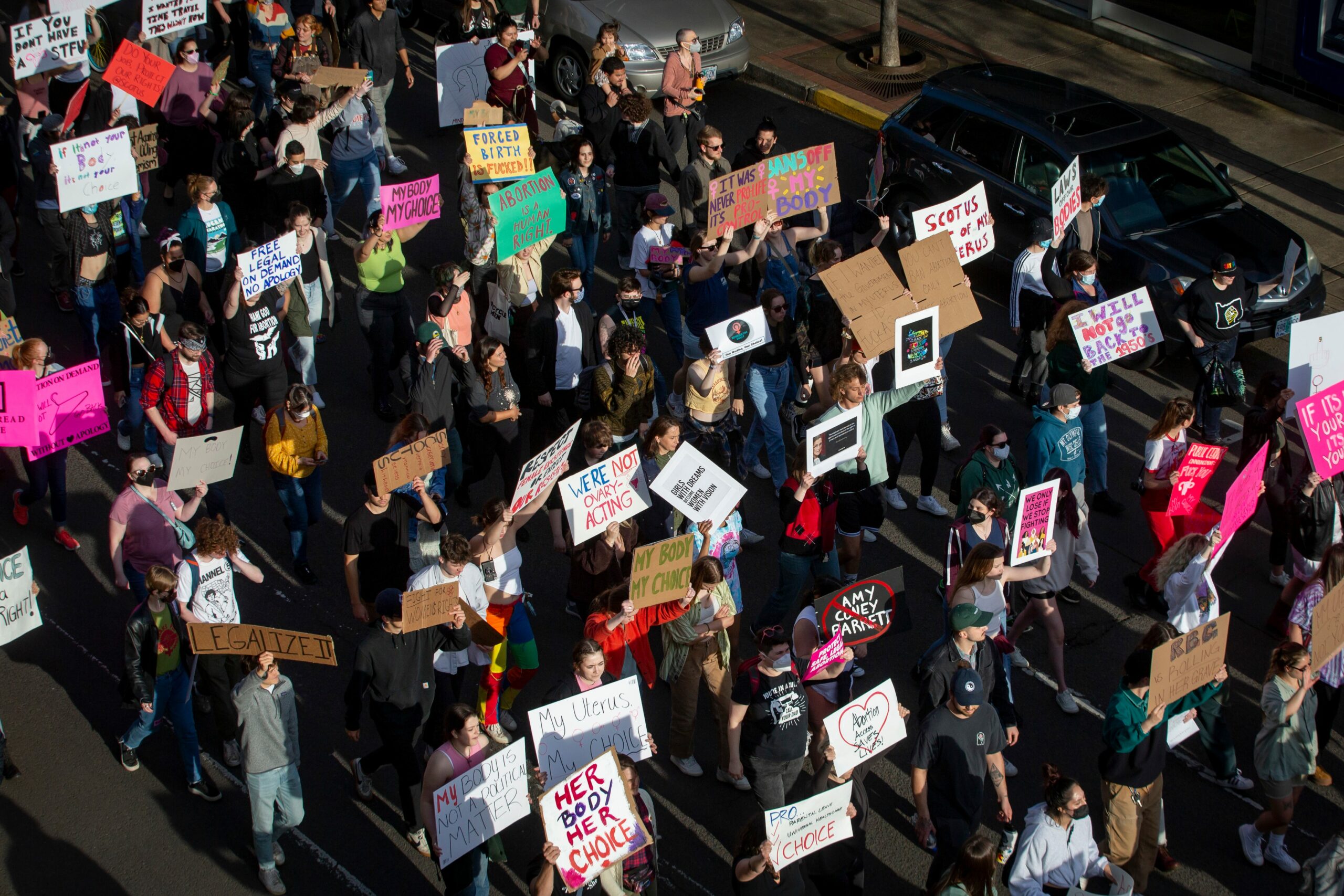Cis or Trans, Our Bodily Autonomy is Under Attack
Everyone deserves full access to healthcare.
by Tiffany Berruti
4 May 2022

In two to three months, Roe v Wade – the landmark 1973 US Supreme Court decision establishing a national right to abortion – will almost certainly be overturned. Abortion will then immediately become illegal in 23 states, with four more likely to enact a comprehensive ban soon after. Millions living in these states, especially those who can’t afford to travel to a state where abortion is legal, will lose access to abortion and be forced to either carry a pregnancy to term or seek less safe means of termination.
At the same time, gender affirming care for minors has been banned in Alabama and is considered child abuse in Texas. Missouri legislators are debating their own statewide ban on gender affirming care for everyone under the age of 25. 240 other similarly transphobic bills have been proposed across the US by Republican politicians. Access to gender affirming care saves lives, and these bans, without exaggeration, will almost certainly result in the deaths of trans youth.
A classic transphobic talking point in both the US and UK is that struggles for the political and social emancipation of trans people represent a threat to cisgender women. Engaging with such points on their own merits would imply they are serious arguments worthy of consideration, which they aren’t. Rather, this discourse which frames trans people, and especially trans women, as predators functions to support the same rightwing political project to curtail bodily autonomy for all.
This project becomes most transparent when we take a look at Samuel Alito himself, the conservative justice who drafted the leaked majority opinion on Dobbs v Jackson Women’s Health Organisation. This opinion does more than just overturn the right to an abortion. It also lays the legal groundwork for a future challenge to the decisions in Obergefell v Hodges, which established a national right to gay marriage, and even Lawrence v Texas, which decriminalised gay sex. Two years ago, Alito also dissented from the Court’s ruling that trans people can’t legally be fired for their gender identity. He argued at the time that such a ruling empowered rapists, joined in dissent by his conservative colleague Brett Kavanaugh – himself an accused rapist.
Rather than inherently contradicting each other, the liberation of cisgender women and trans people is bound together, now more than ever. Both cisgender women and trans people face political and social barriers to necessary healthcare, including (but not limited to) abortion and gender affirming care. And while the repeal of Roe primarily affects cisgender women, it will also affect trans people who require reproductive healthcare, including abortion access. In order to fight and win against both types of bans, we must acknowledge this shared struggle, and use it as the basis for collective organising towards full bodily autonomy for all.
Such organising must fight against these bans – but can’t stop there. In the US, while there is, at least for the moment, a legal right to choose to have an abortion, huge numbers of working class people have no means of accessing said choice. In 1994, Loretta Ross, in her development of what would become the reproductive justice framework, argued that the “right to choose”, while important, wasn’t enough when many women of colour couldn’t afford the cost of the procedure or to travel to the nearest clinic. These barriers to abortion access remain in place today when the nearest clinic can sometimes be hundreds of miles away and the cost, under a private healthcare system, can be prohibitively expensive.
Similar systemic barriers exist when accessing gender affirming care. Across the US, clinics that provide such services can be very difficult to find, often have long waiting lists, and have several bureaucratic hurdles people need to jump over before they can even start accessing healthcare. It’s much the same story in the UK, where one in seven trans people have been refused care by their GP because they are transgender, according to a recent study by TransActual UK. Trans people, due to systemic exploitation and oppression, are also overwhelmingly working class, which makes accessing healthcare in general much more difficult. In the US, trans people – and especially black trans people – face significantly higher rates of unemployment, poverty and homelessness.
A legal right to choose healthcare options is important but not sufficient without the dismantling of wider systemic oppression, and ultimately full social emancipation. This can only be brought about through the implementation of a redistributive, socialist programme that invests in and greatly expands healthcare access for all. When Roe is overturned, the American right will have won a victory they’ve been seeking for almost 50 years. It’s essential we organise together, cis and trans, against our shared oppression, for a world in which all people have full control over our bodies, our sexualities and our labour.
Tiffany Berruti is a socialist feminist organiser with the Democratic Socialists of America.


